I have been testing inline function calls in C++.
Thread model: win32
gcc version 4.3.3 (4.3.3-tdm-1 mingw32)
Stroustrup in The C++ Programming language wirtes:
The inline specifier is a hint to the compiler that it should attempt to generate code [...] inline rather than laying down the code for the function once and then calling through the usual function call mechanism.
However, I have found out that the generated code is simply not inline. There is a CALL instrction for the isquare function.
Why is this happening? How can I use inline functions then?
EDIT: The command line options used:
**** Build of configuration Debug for project InlineCpp ****
**** Internal Builder is used for build ****
g++ -O0 -g3 -Wall -c -fmessage-length=0 -osrc\InlineCpp.o ..\src\InlineCpp.cpp
g++ -oInlineCpp.exe src\InlineCpp.o
